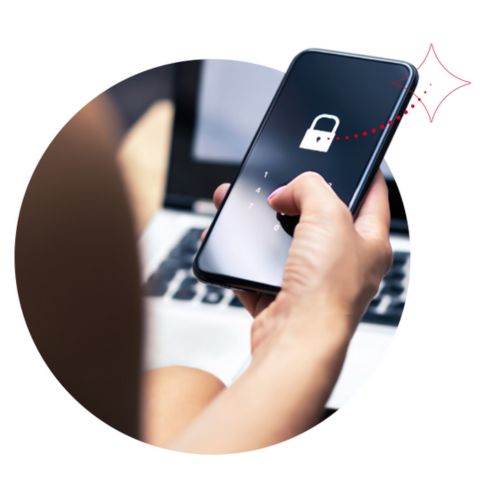Protecting against fraud online

Understanding the key methods of fraud can help you develop strong cyber security
4 minute readAt the heart of all fraud is a trick that convinces consumers to part with their financial details. Fraudsters have become more sophisticated in the online age, and that means it’s more important than ever to be alert to potential scams and how you can avoid being defrauded.
Gone phishing
There are many types of phishing scam, and the most basic are often easy to spot. For example, an email or a telephone call claiming that you have an inheritance or won a competition and need to provide personal details to secure the reward. However, phishing scammers now often pretend to be reputable organisations in order to secure details – while you might shrug off a bogus lottery win because you know you didn’t buy a ticket, it can be harder to ignore a message from what appears to be trustworthy. Remember that your provider would never ask for personal details over the phone or via email.
One of the most common gambits is a message reporting fraud which asks you to click a link, log in and check. In those cases, your concern may mean that you overlook details such as slight misspelling in the email or web address. The best approach is to never click on a link or confirm over the phone. Log in to your account independently, call or visit your branch and check whether a fraud has occurred. If it’s a genuine message, you’ll be able to take action and if it’s a fraudster, you will have avoided getting caught in their trap and provided yourself some reassurance.
Stay alert and up to date
Some cyber criminals don’t even use trickery to obtain your personal and financial details – they simply take it via hacking. In some cases viruses are introduced by email, but there are other ways that hackers get hold of your details. It’s important to keep all your software up to date because that can create vulnerabilities in your system which helps cyber-criminals access your system. It’s worth regularly reviewing your app permissions and ensure you have the latest versions for the same reason. Bogus websites are another method – if you’re searching for deals online and encounter a company you didn’t know about, double check the website and customer reviews before you provide your details to pay for anything. Remember, if it looks too good to be true, it probably is.
Passwords and PINs
As we all spend more time online, we’re gathering a vast collection of passwords and PINs. It may seem simpler and easier to remember if you keep those the same for all your accounts but that is a risk. If you’re using the same details everywhere, it means that once you’ve given been hacked with one account, the fraudster has carte blanche to attack all your other accounts. Make sure your details are separate for each account and never share them with anyone.
International payments
If you want to know more about how we manage security at moneycorp, visit our security hub to find out more about what we do and how you can protect yourself against online fraud. At moneycorp, we will never ask for your details over the phone and if you’re ever unsure about a message you receive that appears to be from us, we’re happy to help and reassure you. Along with our secure online platform to get your money where it needs to be, the whole team is committed to making sure our customers stay safe online.